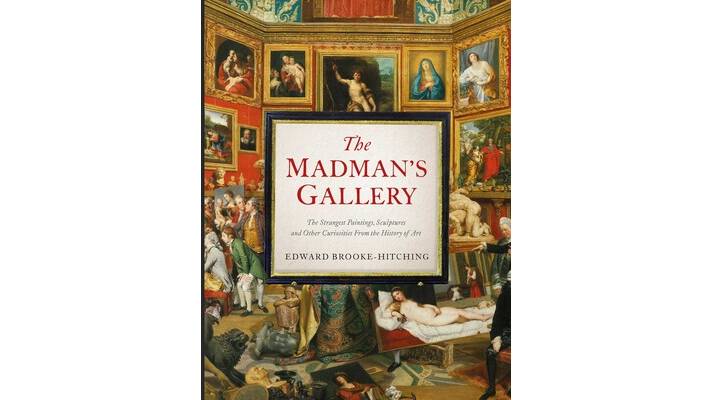Edward Brooke-Hitching has a taste for the unusual and the bizarre in his books. Fox Tossing, Octopus Wrestling and Other Forgotten Sports (2015) revisited some of the strangest competitive games ever invented; The Phantom Atlas (2016) explored the greatest myths, lies and blunders on maps, while the bestselling The Madman's Library (2020), a Sunday Times Literature Book of the Year 2020, documented the strangest examples of books and manuscripts.
Subscribe now for unlimited access.
$0/
(min cost $0)
or signup to continue reading
Brooke-Hitching begins The Madman's Gallery with a quotation from René Magritte that "art evokes a mystery without which the world would not exist". He certainly evokes the mysterious in his latest, profusely illustrated book, which is frameworked by his comment that "while the bulk of our art history books focus on the revolutionary and traditionally reviewed works, The Madman's Gallery is intended to offer an alternative guided tour of art history".

In choosing the artworks, which cover topics such as religion, politics, satire, sex, love, food, domesticity and death, Brooke-Hitchings aims to "make a global sweep for curiosities to show the delightful drunken variety of creative imaginations across vastly different traditions, geographies and eras". His over 100 selections, documented in short chapters, range from prehistoric fertility art of 38 -33000 BCE to recent pieces created by artificial intelligence.
Readers will find chapters on subjects as diverse as Salvador Dali and his 1931 surrealist painting "The Persistence of Memory"; nude versions of the Mona Lisa from da Vinci's apprentices; Arcimboldo and his vegetable portraits; 90 cans of excrement, Merda d'Artista, sealed up by Piero Manzoni in 1961 and now selling individually for up to 275,000 euro; John Singer Sargent's 1884 "Portrait of Madame X"; Franz Marc's 1913 Fate of the Animals, foreshadowing the horror of World War I and Piranesi's 1750 series of nightmare prison pictures "Carceri d'Invenzione".
Odd facts abound such as the Italian monk who levitated so often he's recognised as the patron saint of aeroplane passengers, that the Mona Lisa is the only Louvre painting with its own post box and that Turner used an early canvas of the Thames foreshore as a cat flap for his housekeeper's numerous Manx cats.
Ralph Waldo Emerson once reflected that, "we have to see and hear ourselves as strange before we can properly come to be at home with ourselves, and art presents us with that strangeness - with what we are without knowing it. It captures both our squalor and our radiance".
Brooke-Hitching's fascinating and eclectic selections provide yet another example of how he successfully mines the unusual in human creativity.

